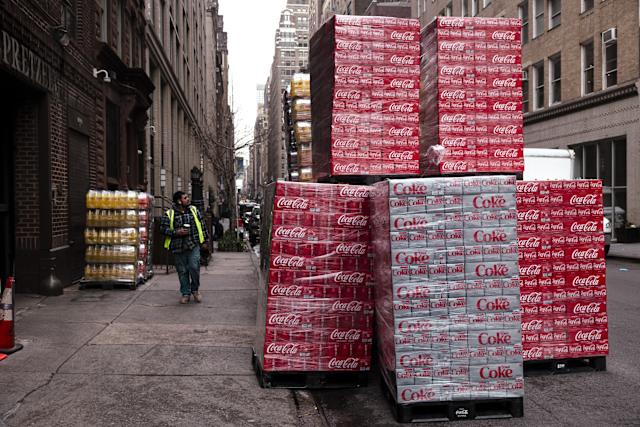In a push to align with President Donald Trump’s call for using American cane sugar, Coca-Cola has started rolling out a new version of its classic soda sweetened with U.S.-grown cane sugar instead of high-fructose corn syrup. However, the company is hitting roadblocks due to limited domestic cane sugar supply and production constraints, making a widespread launch difficult.
Trump’s Influence and Coca-Cola’s Response
Earlier this year, Trump announced on Truth Social that Coca-Cola would introduce a new soda using U.S. cane sugar, a move he endorsed as part of his “Make America Healthy Again” initiative. The Atlanta-based company confirmed in July that it would launch this product in select U.S. markets, starting with 12-ounce glass bottles. Chief Financial Officer John Murphy emphasized a cautious approach, stating, “It’s going to be a measured roll-out,” due to supply chain limitations.
Coca-Cola has historically relied on high-fructose corn syrup, a cheaper and more shelf-stable sweetener, for its U.S. beverages. However, cane sugar-sweetened versions, like Mexican Coke, have gained popularity among consumers. The company aims to replicate this appeal with American cane sugar, but scaling up production is proving challenging.
Supply Chain Hurdles
According to the U.S. Department of Agriculture, cane sugar makes up only about 30% of the nation’s sugar supply, with the rest coming from sugar beets and imports from countries like Mexico. This limited availability of domestic cane sugar is a major barrier for Coca-Cola. Additionally, producing the new soda in glass bottles, which enhances its appeal, requires expanding production capacity—a process that differs from the company’s standard can production.
Murphy noted that the success of Mexican Coke in the U.S. stems from both its cane sugar recipe and its iconic glass bottle packaging. To meet demand for the new U.S. version, Coca-Cola must overcome these logistical constraints, starting with a phased rollout in select markets before expanding in 2026.
Health Debate: Cane Sugar vs. Corn Syrup
The shift to cane sugar aligns with Trump’s push to eliminate high-fructose corn syrup, a stance supported by his Health and Human Services secretary, Robert F. Kennedy, Jr. However, health experts, including Dr. Wesley McWhorter from the Academy of Nutrition and Dietetics, point out that both cane sugar and high-fructose corn syrup are added sugars with similar health impacts. Cane sugar is 50% fructose, while high-fructose corn syrup is about 55%. The FDA states there’s no evidence that one is safer than the other. Overconsumption of either can lead to health issues like weight gain, diabetes, and heart disease.
Balancing Tradition and Innovation
Coca-Cola’s move comes as the company sees growth in healthier drink options, like Coca-Cola Zero Sugar, which saw a 14% global volume increase in its third-quarter earnings. While the cane sugar soda caters to nostalgia and consumer demand for natural ingredients, it doesn’t replace the company’s flagship high-fructose corn syrup formula. Coca-Cola also uses cane sugar in other U.S. products, such as Simply lemonade and Gold Peak iced tea.
As Coca-Cola navigates these supply chain challenges, the company is balancing Trump’s public endorsement with the realities of production and market demands. The phased rollout reflects a strategic approach to meeting consumer expectations while addressing logistical limitations.








